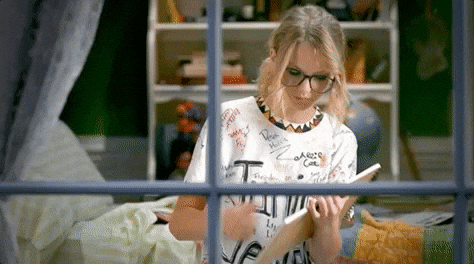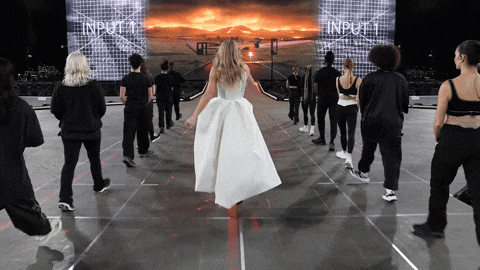Taylor Swift's Unreliable Narrators: When You Can't Trust the Story
Taylor's evolution from accidentally to intentionally unreliable narrator
This week’s episode: Taylor Swift's Unreliable Narrators: When You Can't Trust the Story
"You're on the phone with your girlfriend, she's upset..." What happens when we can't trust the person telling the story? In this week's Show & Tell episode, we explore the concept of unreliable narrators through three Taylor Swift songs that demonstrate how perspective shapes truth. From teenage crush confessions to post-breakup rants to defiant love declarations, we examine how Taylor uses narrative techniques that make us question what's really happening beneath the surface of these seemingly straightforward stories.
🎧 Listen above and ⬇️ scroll below to read Jodi’s extra credit on the evolution of unreliable narrators in Taylor Swift’s lyrics
✨ Join us After School: Paid subscribers get our “After School” content! After School Subscribers can expect:
Monthly bonus subscriber-only episodes
Monthly subscriber-only emails with a preview of upcoming episode topics, books, & songs
Access to our subscriber-only Substack community
The chance to vote on episode topics and deep dive song choices
💟 Engagement Matters: If you’re not currently in a position to become a paid subscriber, please consider becoming a free subscriber + hitting the ‘🤍’ heart button on this post. Any/all engagement helps creators tremendously!
✨ We want to hear from you! ✨
Whether you listen weekly, read occasionally, or just joined us—this quick survey helps us understand who’s here and how to make the podcast + newsletter even better. It takes 5 minutes, and we’d be so grateful for your input.
📜 This Week’s Extra Credit by Jodi
The seven-year-old in "Seven" has a perfectly reasonable explanation for her friend's angry father: "I think your house is haunted, your dad is always mad and that must be why." It's not manipulation or agenda - just the innocent logic of a child who hasn't yet learned that adults can be angry without supernatural intervention.
This captures something fundamental about storytelling: we're all unreliable narrators of our own lives, not because we're dishonest, but because we can only see the world through our own limited perspective. When we examine Taylor Swift's catalog through this lens, we see her evolution from someone unconsciously limited by her viewpoint to an artist who deliberately plays with the inherent unreliability of all first-person storytelling.
The Unconscious Limitations
In Taylor's early songs, the unreliability feels accidental, a byproduct of youth and inexperience rather than artistic choice. As Jenn pointed out in this week’s episode, the narrator in "You Belong With Me" builds her entire case around evidence that seems obvious to her: "she doesn't get your humor like I do" and "I haven't seen [your smile] in a while since she brought you down."
The song works as what Jenn calls "a sweet teenage thing" because we understand those feelings as teenagers—we've all been there! What makes the song unreliable isn't malice; it's the tunnel vision of someone who can't imagine that her perspective might be incomplete. We don't really know what the joke was or what the context was behind the girlfriend being upset. We're very intentionally being given the details that make us think, “oh my God, she doesn't get his humor,” but the narrator does, so obviously that's the better match.
This narrator is reporting in real-time, witnessing conversations, observing interactions, and making judgments based on what she sees in the moment. Her bias is immediate and honest: the certainty that comes with knowing you’re the better match for your teenage crush.
The Strategic Performance
By 1989, Taylor had learned something crucial about narrative control. "Blank Space" shows her becoming deliberately unreliable, playing into the "boy crazy" persona with calculated precision. She uses her self-awareness to create a more engaging, interesting character, one that's obviously performing rather than confessing.
The song works precisely because we know it's a performance. The unreliability becomes part of the artistry. Instead of fighting the media's characterization of her, she amplifies it to an almost cartoonish degree, creating what amounts to narrative jujitsu.
The Complication of Memory
Songs like "august" introduce a different type of unreliable narrator, the kind that comes from looking backward. The narrator reflects with apparent wisdom: "You weren't mine to lose" and "back when we were still changing for the better." There's acknowledgment of her own naivety in wanting something that was never hers to want.
Yet memory might actually make this narrator less reliable than the real-time reporting in "You Belong With Me." We know that remembering isn't recording, it's reconstructing. Each time we revisit a memory, we alter it slightly, influenced by everything that's happened since. The august narrator claims insight through hindsight, but she's filtering past events through years of subsequent experience.
The Meta-Awareness
Taylor's most recent work directly acknowledges this paradox. In "But Daddy I Love Him" from The Tortured Poets Department, she announces her own unreliability: "I'm having his baby / No, I'm not, but you should see your faces." She's not just being an unreliable narrator; she's calling attention to the fact that she's being unreliable.
As we'll explore in next week’s deep dive into this song, the narrator positions herself as the victim of others' judgment while simultaneously revealing details that suggest maybe their concerns are valid. She tells us outright that she gets joy from shocking people, that she's deliberately playing with their reactions. The unreliability becomes performance art.
This represents the culmination of her journey: understanding that since all first-person narrators are inherently biased, the most honest thing you can do is acknowledge that bias.
The Universal Experience
What makes Taylor's evolution compelling isn't that she moved from unreliable to reliable; it's that she learned to use first-person narration’s inherent unreliability as a storytelling tool. We all start as unconsciously limited narrators of our own experiences. As we grow, we develop more sophisticated forms of bias: selective memory, strategic omissions, and emotional interpretations that serve our psychological needs.
Taylor's artistic journey mirrors this universal experience. She’s learned that being able to tell your own story—even unreliably—is better than letting others control the narrative. More importantly, Taylor has discovered that acknowledging unreliability can be more honest and interesting in storytelling than claiming objectivity.
We are all unreliable narrators anytime we tell a story. Taylor's catalog becomes a masterclass in the different ways we can be unreliable: through youth, through hurt, through time, through strategy. Her more recent songs suggest that the question isn't whether we can trust the narrator, but whether we can understand why they're telling the story the way they are.
When everyone is the protagonist of their own story, the most reliable narrators might be the ones who admit they're unreliable. Taylor’s lyrical evolution shows us that growing up isn't about becoming more objective; it's about becoming more conscious of our own subjectivity, and learning to use that consciousness as a tool for deeper truth-telling and more engaging stories.







https://open.substack.com/pub/pinched/p/why-is-taylor-swift-brilliant?r=4i2t7k&utm_medium=ios
Hi, id be honored if you check this out💌